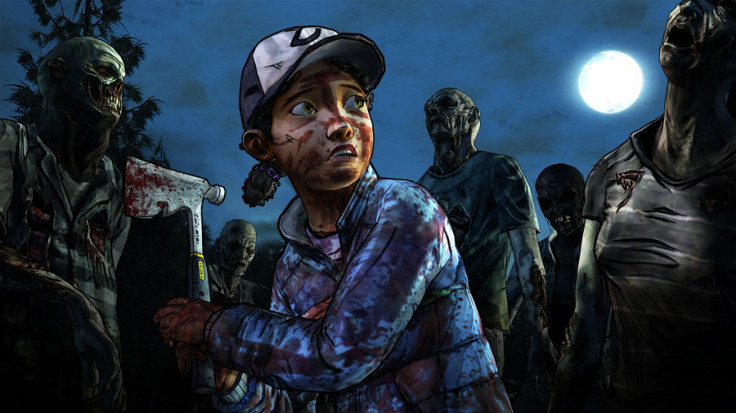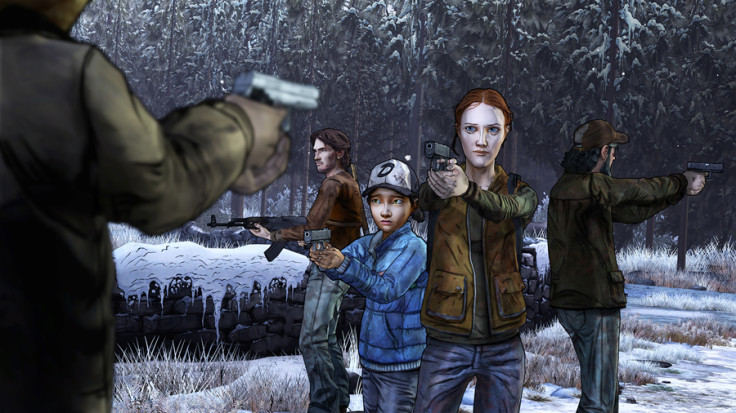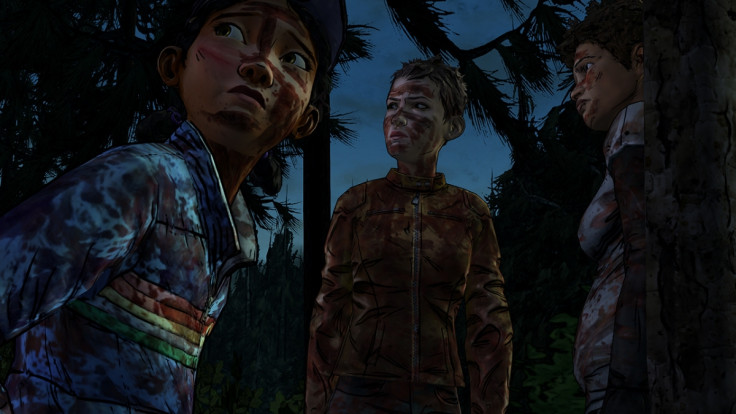The Walking Dead Season 2 Episode 4: Amid the Ruins Review

Developer – Telltale Games
Publisher – Telltale Games
Platforms – PS3 (tested), Xbox 360, iOS, Android, Microsoft Windows
Price - £2.99 (free with £14.99 season pass)
Release date – Out now
The Walking Dead Season 2 Episode 4: Amid the Ruins
I made myself a promise when I started playing The Walking Dead. No matter what happened, no matter how many mistakes I thought I'd made, I'd never restart the game and try again. This is a story about surviving. Your characters are doing the best they can given the circumstances and wrestling, constantly, with the consequences.
If they screw up, they can't reverse it. I thought the emotional impact of their story would be much harder if I played by the same rule.
Amid the Ruins, episode four of The Walking Dead's second season, tested my commitment to this approach almost to breaking point. I've seen enough zombie films, read enough zombie books, to know it's only the pragmatists who survive.

The ones who stay behind to help their friends, or flinch under pressure, get picked off quick. So I'm ruthless. My loyalty to the no reloads rule is surpassed only by my unscrupulous practicality.
The wrong path...
If a tough job has to be done, I do it. If someone has to die so that I can live, so be it. This whole time I've been totally secure with my reasoning. It's only now, with episode four behind me, that I'm starting to wonder if I've gone too far down the wrong path.
Here are three choices I made in Amid the Ruins. Massive spoilers will obviously follow:
- Surita was mortally wounded. While Kenny was still cradling her, I wordlessly jammed my axe in her head, lest she die and turn into a zombie.
- I met a kid called Arvo who was carrying a bag full of painkillers, which he said he needed for his sick sister. I helped to keep him at gunpoint and stole the drugs from him.
- I let Sarah die. She was crying in the middle of a mobile home that was surrounded by zombies. I told her to move but she wouldn't. Time was running out, so I left her. From the roof of the caravan I heard her getting eaten alive.
I'd had to make tough calls in The Walking Dead before. But it was only in Amid the Ruins that I felt the game was starting to question me.
Plans go awry, people get killed
The overarching themes in this series have been attrition and imprisonment – it's always felt like no matter what decisions you make, plans go awry, people get killed. It's an appropriate system given The Walking Dead's harsh, apocalyptic backdrop, but by extension, it creates a kind of vacuum: if everything you do has the same result, then nothing you do can truly be right or wrong and the narrative and characters lose a lot of their complexity.

Amid the Ruins turned that back on itself.
It wasn't as if events or characters would have substantially changed had I made different choices. Rather, this episode gracefully and repeatedly stated that my choices had been acknowledged, that after nine episodes, the writers finally knew what I was up to.
It felt like everything I'd done was being thrown back in my face, as if the game was taunting me
Two moments stood out. The first was immediately following the aforementioned scene with Sarah, where I'd chosen to let her die. Accompanied by Luke, Sarah's long-time friend, and Jane, a mysterious, hardened survivor I was walking down a dirt road. Luke was moralising about Sarah's death. He kept saying things like "we could have saved her" or "surely there was something else we could have done." Having made my choice and followed it up, I didn't want to hear any more about it. By this point, I'd sacrificed Lee, Surita and Sarah, and watched Carver get beaten to death. I was feeling like the ultimate pragmatist – I was feeling stronger and superior to Luke, who wasn't able to curb his emotions.
Petty concerns
Then, as Luke was still talking, the game cut to a close-up of Clementine's – my – face. Luke was visible in the background, and still saying something about Sarah, but Clem started to walk away from him. As she picked up speed, the camera moved with her, cutting Luke and his chatter out of frame and eventually tracking to find Jane. It was a perfect symbol for what I was thinking.
Clementine physically moved away from Luke, the moraliser, and towards Jane, the survivor. I was feeling superior, disinterested in the petty concerns other characters might have had about right and wrong. The game – the camera – echoed that feeling. In that precious few seconds it seemed like The Walking Dead writers got me. It seemed like they were saying "we know you don't want to listen to him; we know you belong with Jane."
The second moment was when, having robbed that kid of his painkillers and watched Jane threaten him with a gun, I picked the response "I thought you were going to shoot him." Jane, my heroic co-survivor, turned to me and asked, with venom "Why? Did you want me to?"
More than any character dying, any Sliding Doors-style divergence in narrative, that line made me feel like I was being monitored, like my actions had meaning. Those big events, the choices you get in The Walking Dead that change, say, who's alive in the next episode, happen to everyone. And although Jane's dialogue might not change, the fact that until this point I'd taken such a ruthless practical approach made it needle more than I imagine it would for other players.
Testing my commitment
It felt like everything I'd done was being thrown back in my face, as if the game was taunting me, saying "We know you. We know what you're like. You've taken it too far. Even Jane, who you think is like you, is disgusted." It was a moment just for me.
These were the moments that really tested my commitment, that made me want to restart. These were moments when, for the first time since playing The Walking Dead, I felt like I was truly being judged for what I'd done.
Here I was, controlling Clementine, this 12-year-old girl, and I'd turned her into a monster. Jane was right. I did want her to shoot the kid. It was the practical thing to do. And I felt ashamed because of it. I felt, for a second, like the game was talking directly to me, that unlike the marked splits in narrative which happen to everyone, here was a moment where I, specifically was being confronted, where my approach to The Walking Dead was being questioned.
That made Amid the Ruins the most powerful episode of this series so far.
Scores:
- Gameplay: 10/10 – Everything I'd done in The Walking Dead came back to tease me in this episode, in ways I couldn't ever have expected
- Graphics:9/10 – Telltale's cel-shaded visual design continues to impress. The Civil War monument where the majority of this episode is set is a great backdrop
- Sound: 9/10 – With each successive instalment, The Walking Dead proves the game industry has a fantastic stable of voice actors
- Writing: 10/10 – Amid the Ruins perfectly struck the balance between intelligent top-down direction and player interaction. The script worked because both Telltale and myself had invested so much in it
- Overall: 9/10 – Amid the Ruins tops In Harm's Way as the best episode of The Walking Dead so far
Want to know what our review scores mean? Have a look at how we review games.
© Copyright IBTimes 2025. All rights reserved.



















